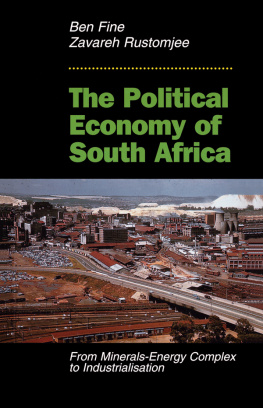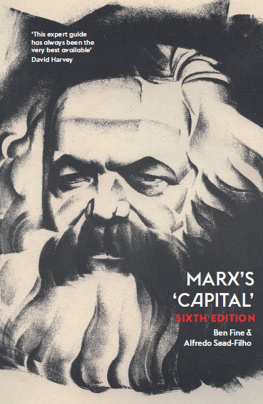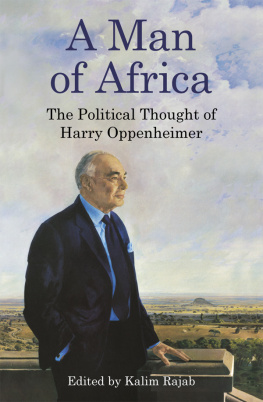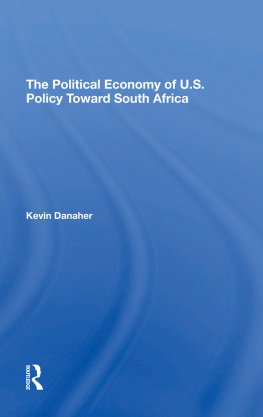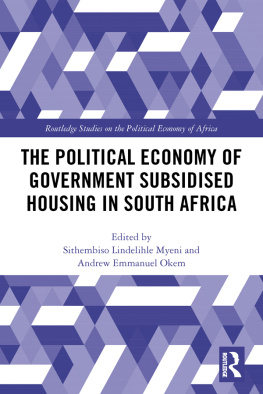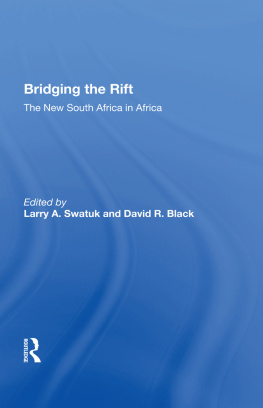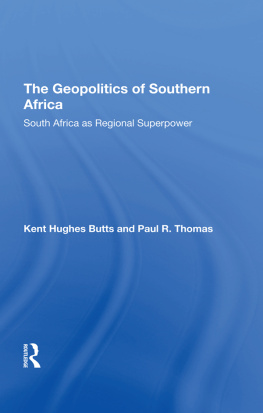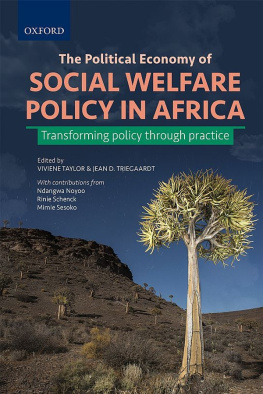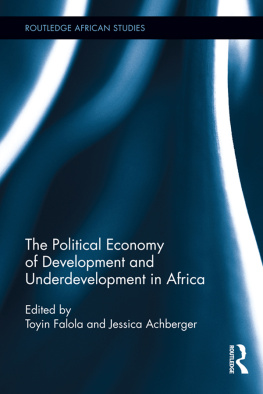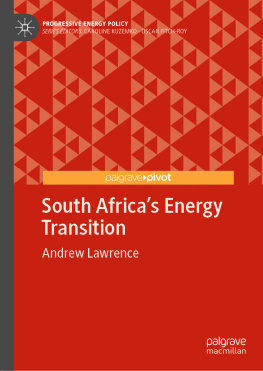First published in 1996 by C. Hurst & Co. (Publishers) Ltd. and Westview Press
Published 2018 by Routledge
711 Third Avenue, New York, NY 10017, USA
2 Park Square, Milton Park, Abingdon, Oxon OX14 4RN
Routledge is an imprint of the Taylor & Francis Group, an informa business
Copyright in London, England, by Ben Fine and Zavareh Rustomjee, 1996
All rights reserved. No part of this book may be reprinted or reproduced or utilised in any form or by any electronic, mechanical, or other means, now known or hereafter invented, including photocopying and recording, or in any information storage or retrieval system, without permission in writing from the publishers.
Notice:
Product or corporate names may be trademarks or registered trademarks, and are used only for identification and explanation without intent to infringe.
Library of Congress Cataloging-in-Publication Data
Fine, Ben.
The political economy of South Africa: From minerals-energy
complex to industrialisation / Ben Fine, Zavareh Rustomjee,
p.cm.
Includes bibliographical references and index
ISBN 0-8133-2789-X. -- ISBN 0-8133-2790-3
1. South Africa -- Economic conditions. 2. South Africa-- Economic
policy. I. Rustomjee, Zavareh, II. Title
HC905.F561996
338.968--dc2096-19858
CIP
ISBN 13: 978-0-8133-2790-7 (pbk)
Research for this book was funded from October 1990 to October 1992 by the UK Economic and Social Research Council under grant R000232411 to study the South African minerals-energy complex and the capital goods sector. But the books history runs longer and deeper than the term of funding. For one author it began in the mid-1980s when he was asked on behalf of the African National Congress (ANC) to assess and make policy recommendations for the South African mining and energy sectors. These recommendations emerged as discussion papers under the now defunct group Economic Research on South Africa. For the other author, the second half of the 1980s, when he was directly experiencing the role of the MEC through his work as a chemical engineer in South Africa, was the crucial time.
Our paths crossed and eventually ran together in order to undertake this research, which began at Birkbeck College, University of London, and then removed to the newly-founded Centre for Economic Policy for Southern Africa at the School of Oriental and African Studies, also part of the University of London. Throughout this time we have continued to have close working relations with the South African democratic movement, with one of us acting as a contributor to the Industrial Strategy Project supported by the Congress of South African Trade Unions, the other as a contributing editor to the Macroeconomic Research Group report, Making Democracy Work , and both of us serving in an advisory capacity at various times to the ANCs Department of Economic Planning. Once again, our paths have now taken their separate courses: one of us is continuing as an academic with strong ties to Southern Africa and the democratic movement while the other has served as policy adviser to the new South African Minister of Trade and Industry, before appointment as Director-General for Trade and Industry.
Throughout our collaboration, daily and close at hand or less frequently and at a distance, we have benefitted from critical support from a host of colleagues and friends, whether they be attached to the institutions listed above or otherwise. Special thanks to John Sender, who commented on the whole manuscript, and to the originating publishers, Hurst and Co. Others are too numerous to list. We dedicate this book to them and the spirit of debate that they have inspired. Hopefully this spirit will continue and even intensify, as it must if political economy is to make a lasting contribution to the effective formulation of policies necessary to meet the basic needs and economic empowerment of the majority of South Africans.
B EN F INE
Z AV R USTOMJEE
London, 1995
1
Introduction and Overview
The research and first drafts for this book were undertaken as the apartheid regime was undergoing what ultimately turned out to be its final political death throes. At each stage up to the election itself in April 1994, potentially insurmountable obstacles appeared to stand in the way of the election, not the least of which was threat of non-participation and intensified violence from Inkatha in the last few weeks of campaigning. In the event, the electoral process was completed and a remarkable political transition has been realised. Whatever the consequences may be for the longer-term material well-being of the majority of the population, now enfranchised, the extent of political change could hardly have been anticipated a few years ago even by those who reasonably, if cynically, question the degree to which there have been fundamental shifts in economic power.

